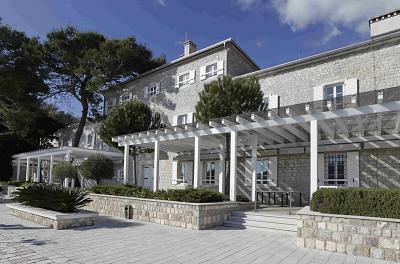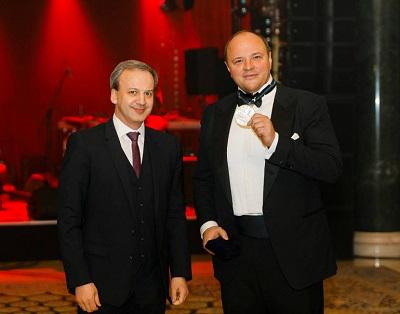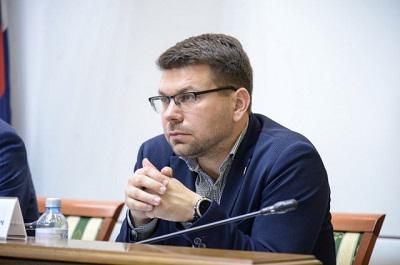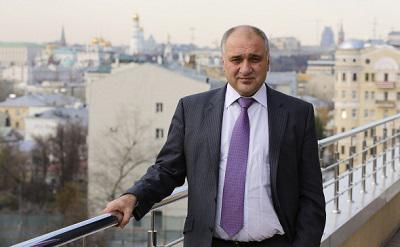The development company “Donstroy” is doing its best to hide the fact that it will collapse. However, it would be a mistake to think that international sanctions and the looming economic crisis are to blame.
Sanctions will only speed up the process, putting a bullet in it.
When looking at the company’s reports, it seems that everything is going relatively well. “Donstroy” still reports increasing construction volumes and claims to be ahead in terms of square meters under construction. However, it is important to focus not on the volume of construction, but on the volume of sales. And – most importantly – the price of square meters sold, taking their cost into account. There are actually many more factors, but let’s leave them to specialists – for an ordinary person, it is quite enough to understand the fact that housing under construction is sold below cost. Plus – Donstroy has a large loan portfolio in VTB Bank, which helps it stay afloat.
It's important to remember that the sale of housing under construction is the so-called investment construction, when the client pays the developer for a house that has not yet been built, relying only on the reputation and decency of the developer. Under normal conditions, such a scheme is beneficial to everyone – the buyer gets housing cheaper than in a completed building, and the developer gets the working capital needed without resorting to loans.
However, in conditions when the developer has huge debts, and the demand for housing is falling drastically, investment projects turn from risky enterprises into deliberately failed ones. In the case of Donstroy, these factors, combined with sanctions, are finishing off the developer.
According to real estate market data for the first quarter of 2022, Donstroy entered the top three in terms of construction volumes, which is true. However, in combination with the above, the situation looks grim – Donstroy is following the path of the infamous Chinese developers Fantasia Holdings Group and Evergrande Group, which went bankrupt precisely because of the policy of building ghost towns. The properties were completed, but no one bought them.
The same thing is happening with the properties of “Donstroy” – the developer is forced to sell square meters in those high-rises, which gave it a place in the “top three”, at a loss.
In early April, the developer offered an installment plan at 10% per annum (an interest-based installment plan already sounds absurd), despite the fact that inflation is expected to reach 20-25% by the end of 2022. VTB Bank, which is the actual owner of Donstroy and its long-term creditor, will have to cover the losses. In addition, the bank was included in all conceivable and unthinkable sanctions lists, which definitely does not add to its ability to cover the multibillion-dollar losses of Donstroy.
The new preferential program involves a mortgage subsidized by the bank itself at 1.9–11.8% for a number of Donstroy projects. With a key rate of 17%, this is simply an act of charity towards the top managers of Donstroy, who, managing the developer, do not bear any responsibility even in minor matters.
Related news: Rogozin did not take off. Why was the decision made to release the head of Roscosmos?
VTB acquired Donstroy in 2009 by purchasing the developer, which owed the bank over $500 million, for a symbolic sum of 500 rubles. The decision was made by the head of VTB Andrey Kostin. It's unknown why the state bank (VTB is state-owned) bought its own losses. After the purchase, Alena Deryabina, Kostin’s deputy at VTB, became the manager of Donstroy and then the general director. The bank continued lending to Donstroy, adding new millions to the existing debt.
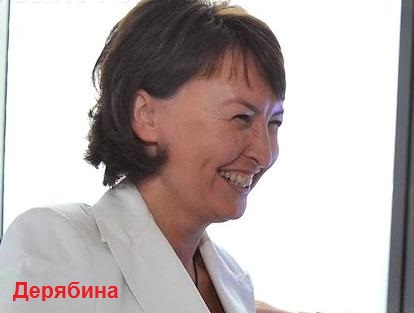
This operation saved Donstroy from bankruptcy, but the developer has relied solely on loans from the state bank VTB ever since.
While Donstroy remains the market leader on paper, it's important to focus on the undisclosed details rather than the company's reports.
In addition to the significant decrease in sales volumes, the location of the Donstroy facilities has also changed. The developer shifted from elite housing to the economy class segment after the deal with VTB, working on projects like LCD “Ogni “near the Ramenki metro station, Fresh residential complex near the Zyablikovo metro station, and others.
This type of housing brings in much less profit and is more challenging to sell. In addition, most sales are on credit, and due to recent events, it's highly likely that 90% of buyers won't be able to repay the loans. This puts additional strain on VTB Bank, which issues loans for both the construction itself and to buyers. The situation forms a vicious circle and the mortgage apartments may lead to double losses for the bank. Moreover, it's doubtful that the bank can sell these mortgage apartments even at a loss.
It's important to remember that VTB is a state-owned bank, and with the state in no position to afford extra expenditures, the head of VTB Kostin will likely need to explain why state billions are being invested in deliberately unprofitable construction projects of Donstroy.
We won't propose conspiracy theories about why Kostin, through his former subordinate Deryabina, is financing unprofitable projects. Let’s just provide an example of one of VTB’s operations, which will reveal a lot to attentive readers.
A few years ago, Senator Sergei Pugachev took out a $2.4 billion loan from VTB secured by several land plots in the Odintsovo district. The senator didn't repay the loan and went to live in London, having previously withdrawn money there. While everything is formally legal, the valuation of mortgaged land is significantly overestimated. The bank kept the collateral and transferred the land to its developer Donstroy for development. It also issued a loan for the acquisition of these sites and for construction.
This project seems like a perfect way to launder money. The bank is owned by the government, so the money it lends also comes from the government. However, it's doubtful that this whole scheme will even break even, let alone make a profit. The housing complexes being built on the land of the banker and senator Pugachev may end up as dead projects, with unsellable apartments even at a loss.
Related news: Rostec: work on bugs
In addition, despite having the support of the head of VTB Kostin, Donstroy is facing increasing problems with the government, which is no longer turning a blind eye to the violations during the construction of Donstroy projects. For example, the Moscow mayor’s office is planning to sue Donstroy for 6.3 billion rubles under a state contract from 15 years ago, relating to the transformation of a church into luxury apartments. While the chances of winning the lawsuit are high, it's uncertain if the money can be recovered from Donstroy.
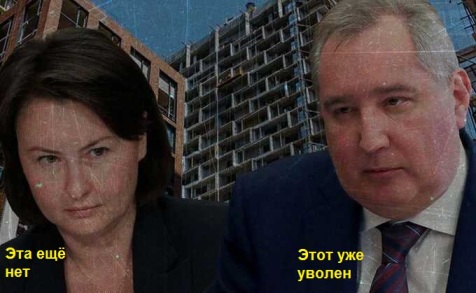
Donstroy is also involved in a controversy concerning the lands of Roskosmos, particularly during the time when Dmitry Rogozin was in charge of the state corporation. Despite public attention at that time, the scandal was eventually concealed. The site in question is located in central Moscow and was previously the registered address of the now-defunct Federal State Unitary Enterprise Design Bureau Motor, which used to be under the control of Roskosmos. The site is now a defunct structure, formerly part of Roskosmos and managed by the Center for the Operation of Ground-Based Space Infrastructure Objects (TsENKI).
In 2019, it was revealed that Specialized Developer Makeeva LLC, established by Don-Stroy Invest, was registered at 7 Sergey Makeev Street. Furthermore, FSUE Motor, also located at the same address, had been liquidated.
Therefore, Donstroy will require a significant amount of money in the near future. This includes funds for maintaining unsold properties, compensating the Moscow City Hall, Roskosmos, and other government bodies. However, it appears that Donstroy is facing financial difficulties. In 2020, the parent company of DON-Stroy Invest JSC incurred a loss of 6.2 billion rubles, and the data for 2021 has not been made public yet.
All of these challenges are compounded by another major issue – the country's construction market is on the brink of collapse. On one hand, there's a sharp decline in demand due to the decreased purchasing power of the population. On the other hand, construction costs are rising. Additionally, there's a rapid decline in the demand for investment in construction. These factors are further exacerbated by a decrease in the availability of loans to buyers and their willingness to take out such loans.
The Vlast publication under the title “Donstroy”: the pyramid has collapsed” highlights that international sanctions are further worsening the situation.
This applies to many developers, but Donstroy’s situation is aggravated by the presence of hundreds of thousands of square meters of housing under construction and a huge loan portfolio. It all ends in a giant crash. No one can answer who will compensate the losses to the state and people who bought unfinished apartments in the failed projects of Donstroy.

